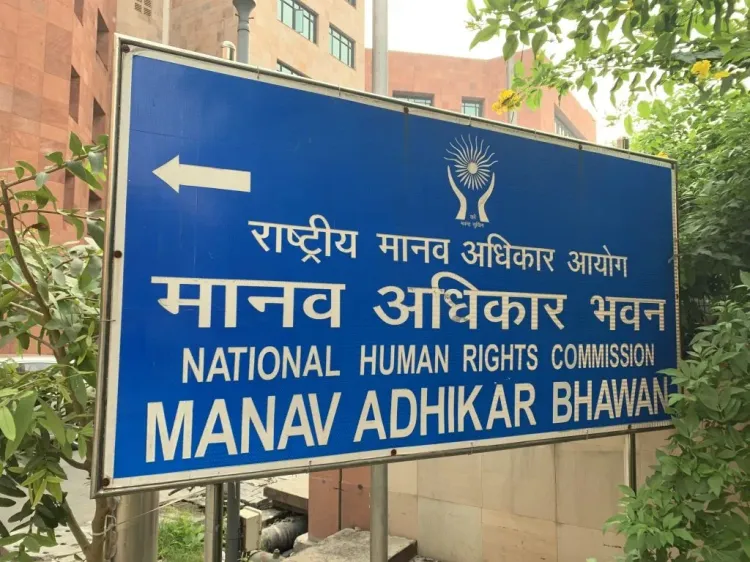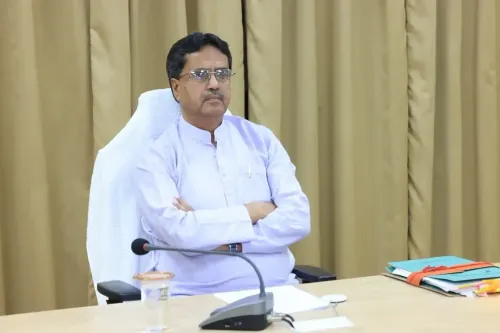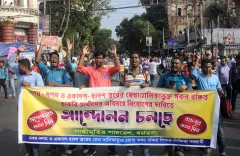What Actions is NHRC Taking Regarding the Journalist's Death in Jhajjar?

Synopsis
Key Takeaways
- NHRC demands report from Haryana Police on journalist's murder.
- Incident raises serious human rights concerns.
- Previous investigations into student deaths in Haryana.
- Calls for transparency and accountability in institutional safety.
- Importance of protecting journalistic freedom.
New Delhi, May 27 (NationPress) The National Human Rights Commission (NHRC) has requested a report within a span of two weeks from the chief of the Haryana Police concerning the suspected murder of a journalist working for a news portal in Jhajjar district earlier this month, as confirmed by an official on Tuesday.
The Commission initiated suo motu cognizance based on media reports indicating that a journalist was shot near his home in Luhari village in Jhajjar district of Haryana on May 16, 2025.
According to reports, the journalist, associated with an online news portal, was on an evening stroll when unidentified gunmen attacked him and fled the scene.
As per media accounts, local residents rushed the victim to a nearby hospital, but he was later transferred to another facility in Gurugram, where he ultimately succumbed to his injuries.
The NHRC's directive to the Haryana Police chief emphasized, “If the allegations are accurate, they highlight a severe violation of the victim's human rights.”
Consequently, the Commission has demanded a comprehensive report within two weeks, detailing the ongoing investigation, stated an official.
In a related case concerning Haryana, the NHRC previously asked for a report from the Haryana government and the state police chief regarding the suspicious deaths of two students at Ashoka University in Sonipat in February.
A bench led by Priyank Kanoongo acknowledged a complaint and instructed the government and police to submit an Action Taken Report by June 7.
“At first glance, the complaint suggests serious human rights violations that could arise from foul play, negligence, or systemic issues like ragging or academic pressure,” stated Kanoongo.
The complainant highlighted that the tragic deaths, occurring on February 14 and 15, raised significant concerns about potential institutional failures.
Reports indicate one student allegedly died by suicide, while another's body was found under suspicious circumstances near the university's entrance shortly after.
“The complainant pointed out a disturbing lack of transparency regarding these incidents, including the non-disclosure of the alleged suicide note. Moreover, there were crucial unanswered questions about the university's mental health support, safety measures, and the overall campus environment,” noted the NHRC order.








